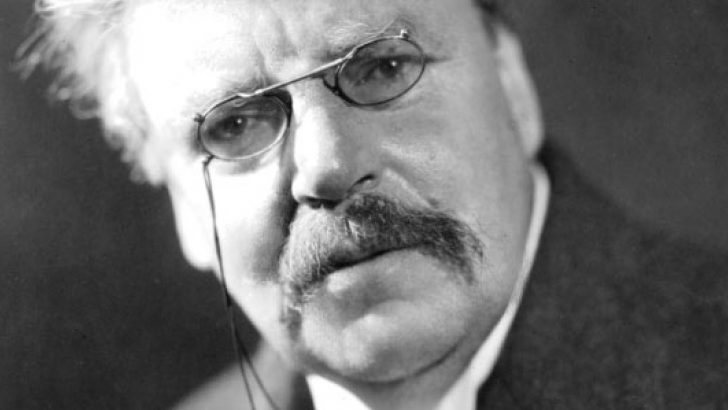The World of Books by the Books Editor
Back in 2013, the Bishop of Northampton Dr Peter Doyle appointed Canon John Udris to inquire into the suitability of Gilbert Keith Chesterton for canonisation. Canon Udris’s report will be given to the bishop later this month.
He has been quoted in the press as saying of Chesterton that “in these polarised political times, he was a great example of a Christian with a deep respect for his opponents”.
There is a great idealisation of Chesterton in the US and in South America. Pope Francis shares that enthusiasm. But much of the modern enthusiasm for Chesterton seems to be derived not from the man himself and his writings, but from an image of him his admirers, especially in the US, have crafted, by turning a life-long Tory-hating liberal into a conservative.
Discussing Chesterton with a member of the Chesterton Society in Ireland – a tiny group with perhaps a dozen members in my experience – he said that he did not think much of the Fr Brown stories: “The’re not even much good as detective stories.”
One has to admire such an audacious opinion that runs contrary to the general view – Chesterton was the first President of the Detection Club, whose members include Monsignor Knox and Dorothy L. Sayers?
But as those moral fables lie at the very heart of Chesterton achievement, to dismiss them suggests that some of his modern admirers are missing his point. Yet they too long for that medieval Christianity conceived of as “a London small and white and clean” – clearly free of muck, stinking sewers and disease.
Back in 2012, the Iona Institute brought over the editor of the Chesterton Review from the US. He spoke to a large audience in a Dublin hotel. As The Irish Catholic had just reissued on the occasion of the Eucharistic Congress a new edition of Chesterton’s Christendom in Dublin, an appreciation of the event back in 1932, we thought we might sell some copies at this venue.
But alas those attending were not interested in the book, or GKC’s views on Ireland.
They had come to hear a very different message from the editor, one filled with the conservative trends that have taken hold of the US (helping bring Trump to power).
But the lecture was not designed for an Irish audience. In the course of it the speaker mentioned Chesterton’s loathing of the “beastly Hun” in the Great War – a symbol it seemed of the pagan enemies that surround us all.
But he forgot where he was – or rather did not really see any difference between England and Ireland. He forgot, or never knew, that the German Empire that Chesterton loathed was for patriotic Irish people Pearse’s “gallant allies in Europe” of the Irish Republic in 1916.
But to revert to the member of the Irish society. I mentioned the involvement of Chesterton and his brother Cecil and Hilaire Belloc in the heated controversies over the “Marconi Scandals” which were driven by an anti-Semitic loathing focused on Sir Rufus Isaacs: the Marconi Scandal is not distinguished on Chesterton’s part by any “deep respect for his opponents”.
It should also be kept firmly in mind that Chesterton only became a Catholic in 1922, 14 years before his death in 1936; he was then 48. So most of his life and writings were as a Protestant. admirers quote Orthodoxy as if it were a Catholic text, when in fact it was published in 1908 as a work of general Christian apologetic, which sustains Christianity not Catholicism.
The real man
GKC was a journalist, not a theologian. For 30 years from 1906 to 1936 Chesterton wrote the popular ‘Our Diary’ column in the weekly Illustrated London News. It constitutes the largest volume of his writing, but on a casual week by week basis, commenting widely on the world and its ways.
Though available on line from the British Newspaper Archive, few of his admirers read these pages. They prefer the Chesterton confected by his biographers, rather than the real man.
It is hard to recognise in the Chesterton of his admirers the drinking denizen of Fleet Street’s pubs. Chesterton was a lovable man, and an admirable writer in part, but he was no saint.


 Peter Costello
Peter Costello G.K. Chesterton
G.K. Chesterton 